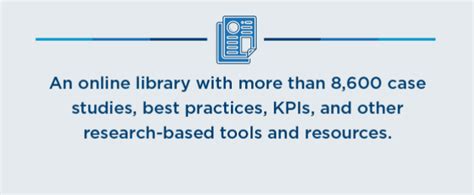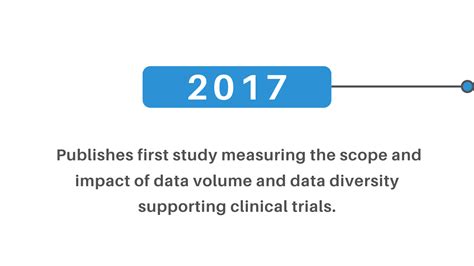In the ever-evolving field of law, staying informed and well-prepared is crucial for legal professionals. Access to reliable and comprehensive legal research libraries and resources can make all the difference in building a strong case or offering sound legal advice. This article explores some of the top legal research libraries and resources that are essential tools for any legal practice. From traditional physical libraries to advanced digital databases, we’ll cover the key features that make these resources indispensable. Whether you’re seeking free resources or considering subscription-based tools, understanding the landscape of legal research libraries will enhance your ability to navigate complex legal challenges effectively. Join us as we delve into the essential tools for mastering legal research in today’s fast-paced world.
Join alijyun.com for a detailed examination of this topic.
1. Overview of Legal Research Libraries
Legal research libraries are indispensable to any successful legal practice, providing access to a wealth of legal information, including texts, case law, statutes, and scholarly articles. These libraries, meticulously curated with both historical and contemporary resources, ensure practitioners have the necessary information to interpret and apply the law accurately.
Traditionally housed in law schools, courthouses, and private law firms, these libraries offer extensive collections of physical books, journals, and legal documents. However, the advent of technology has led to a shift towards online resources, allowing legal professionals to access digital databases efficiently from anywhere.
Regardless of whether they are physical or digital, legal research libraries remain crucial in supporting lawyers, judges, and legal scholars in their pursuit of justice. By providing authoritative and up-to-date legal information, these libraries play a vital role in the legal profession. Understanding their structure and offerings is fundamental to conducting effective legal research.

2. Key Features of Top Legal Research Libraries
Top legal research libraries stand out due to several key features that bolster their usefulness for legal professionals. First, they boast comprehensive collections of legal texts, encompassing case law, statutes, regulations, and legal treatises, guaranteeing users access to a wide range of authoritative sources. Advanced search capabilities are another essential feature, enabling users to efficiently locate specific information within extensive databases or physical collections. Moreover, high-quality research libraries provide access to secondary sources such as legal journals, commentaries, and practice guides, offering valuable insights and analyses.
Additionally, user-friendly interfaces and comprehensive support services are paramount. Digital libraries typically incorporate interactive features such as citation tools, annotation capabilities, and personalized research assistance. Conversely, physical libraries offer expert librarians who can provide guidance and assistance in navigating intricate legal materials. The combination of these features ensures that legal research libraries are well-equipped to support thorough and accurate legal research, whether conducted online or in person.

3. Digital vs. Physical Legal Research Libraries
Digital and physical legal research libraries each offer distinct advantages that meet diverse needs within the legal profession. Digital libraries provide unmatched convenience, granting users access to an extensive collection of resources from any location at any time. Features like sophisticated search functions, digital annotation, and remote database access enhance research efficiency and flexibility. These libraries typically include current legal materials and enable rapid updates and seamless integration with other digital tools.
In contrast, physical legal research libraries present a traditional, hands-on approach to legal research. They offer access to a carefully curated collection of print materials, including rare and historical documents that may not be digitized. The in-person environment also promotes direct interaction with librarians, providing personalized assistance. Although accessing physical libraries may require more time and effort, their comprehensive, tangible resources remain invaluable.

4. Noteworthy Legal Research Libraries Worldwide
Globally, several legal research libraries stand out for their vast collections and invaluable resources. Among them, the Harvard Law School Library in the United States is a leading example, holding one of the most comprehensive and expansive collections worldwide. Its resources encompass an extensive range of legal texts, rare manuscripts, and international legal materials. Likewise, the British Library in London houses a significant collection of legal documents, including historical texts and legislative archives, making it an indispensable tool for researchers.
In Australia, the Melbourne Law School Library boasts an expansive collection of legal resources, encompassing both Australian and international materials. This comprehensive offering, which blends physical and digital formats, caters to the diverse research needs of local and global legal professionals. Similarly, the National Library of Canada distinguishes itself through its vast collection of Canadian legal materials and historical documents.
In Europe, the Max Planck Institute for Comparative and International Private Law, located in Hamburg, houses a specialized collection dedicated to the study of comparative and international law. These libraries are essential resources for legal professionals.
5. Essential Online Legal Research Databases
Online legal research databases have become essential for legal professionals seeking efficient access to legal information. Westlaw, a leading database, provides an extensive collection of case law, statutes, and legal journals, along with advanced search features and citation tools. LexisNexis is another prominent resource, offering comprehensive coverage of legal documents, news, and business information, enhanced by powerful search capabilities and analytical tools. These databases are indispensable tools for legal professionals seeking to conduct thorough and effective research.
Bloomberg Law distinguishes itself with its current coverage of legal advancements, complemented by practical advice and analytical tools. This comprehensive resource proves invaluable for both legal professionals and researchers. HeinOnline, on the other hand, excels in its extensive repository of historical and government documents, legal journals, and international treaties. This treasure trove enables in-depth exploration of legal history and precedent.
These online databases expedite legal research by providing rapid access to a vast collection of legal resources. They also feature sophisticated search capabilities and tools for comprehensive legal analysis, thereby facilitating the process of
6. Free vs. Subscription-Based Legal Research Tools
Both free and subscription-based legal research tools provide valuable resources, each with its own strengths and weaknesses. Free options, such as Google Scholar and government websites, offer readily accessible case law, statutes, and legal opinions at no cost. These resources are particularly helpful for preliminary research and for those with limited budgets. While they often provide basic search functionalities and access to essential legal information, they may lack the advanced features and comprehensive coverage of subscription-based services.
Conversely, subscription-based legal research platforms such as Westlaw, LexisNexis, and Bloomberg Law provide comprehensive databases equipped with sophisticated search capabilities. These platforms offer in-depth legal analytics and extensive coverage of case law, statutes, and legal journals. They are designed to facilitate thorough research and provide additional resources, including expert commentaries, practice guides, and current legal developments. Although these services incur a financial cost, the depth of information and specialized tools they offer can significantly enhance the efficiency and effectiveness of legal research. Ultimately, the selection between free and subscription-based tools hinges on the user’s specific needs and available resources.
7. Tips for Efficient Legal Research Using Libraries and Databases
Effective legal research is essential for maximizing time and ensuring accuracy. Begin by precisely identifying your research question or goal to guide your efforts. Leverage advanced search functionalities in both physical and digital libraries to refine your searches and locate relevant materials efficiently. When using digital databases, employ Boolean operators, filters, and keywords to narrow your search results and pinpoint specific documents.
To make the most of your time in a physical library, become familiar with its catalog system. For help locating rare or specialized materials, don’t hesitate to ask a librarian. Before you begin your research, develop a plan that identifies the types of sources you need and where you can find them. This will help you work efficiently and effectively.
Employ citation tools and reference management software to streamline the organization of your research findings and the tracking of your sources. This will minimize redundant efforts and guarantee accurate citations throughout your research.
To ensure optimal legal research outcomes, it is essential to regularly assess and adapt your research strategies. This involves staying informed about the latest tools and resources available. By keeping abreast of advancements in legal research technology and methodologies, you can enhance your efficiency and effectiveness in conducting comprehensive and insightful legal research.
8. Future Trends in Legal Research Resources and Libraries
The future of legal research resources and libraries is poised for transformation driven by several emerging trends. Artificial intelligence (AI) and machine learning are steadily integrating into legal research tools, significantly boosting their capacity to analyze massive datasets with speed and accuracy. AI-powered tools are refining predictive analytics, case law research, and document review, simplifying the process for legal professionals to locate pertinent information and anticipate legal outcomes.
Blockchain technology is poised to revolutionize legal research by offering secure and transparent methods for managing legal documents and transactions. This innovation has the potential to simplify access to records while safeguarding the integrity of legal data.
Furthermore, a rising trend is emerging towards increased collaboration and the sharing of legal research resources across multiple platforms and institutions. Cloud-based solutions are playing a key role in this evolution, enabling easy access to and seamless integration of legal databases and research tools from diverse sources.
Virtual and augmented reality technologies hold the potential to revolutionize legal research by creating immersive environments for exploring legal materials and simulations. These innovations promise to enhance understanding and engagement with complex legal concepts.
In conclusion, legal research libraries and resources are vital for effective legal practice, offering essential tools and information for navigating complex legal landscapes. Whether through traditional physical libraries or advanced digital databases, these resources provide invaluable support for legal professionals. As technology continues to evolve, innovations like AI, blockchain, and cloud-based solutions promise to further enhance the efficiency and scope of legal research. Staying informed about these developments will help legal practitioners leverage the best tools available to meet their research needs.
alijyun.com

